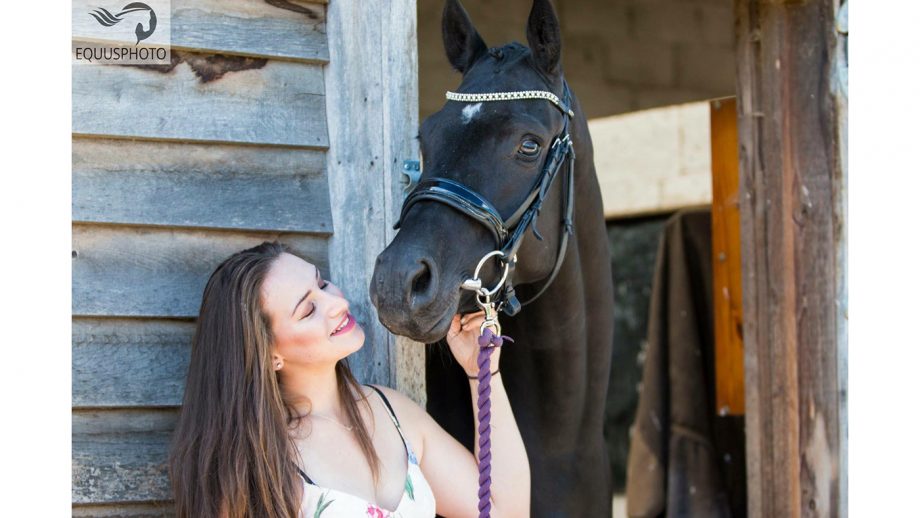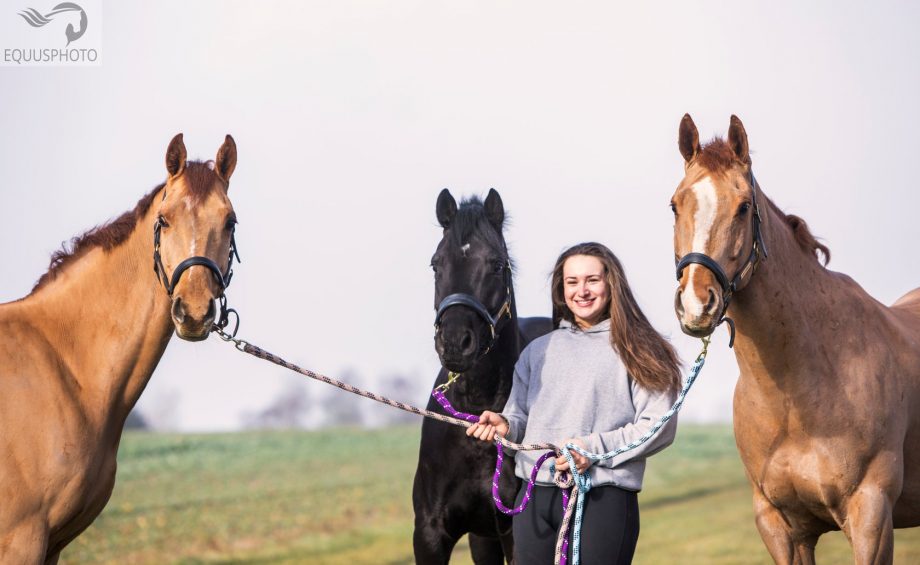As a coach, I see this a lot. I see a lot of mentally defeated individuals who’s fire has burnt out. I can recognise them within five minutes of a lesson starting. They immediately totally depend on me for instructions for every second. If I stay quiet for a couple of laps of the arena, they get anxious about what I am thinking and what I am about to say. These are often the signs of a student, battered and bruised by a trainer who uses negative reinforcement.
Before I start a war in the comments, this is not necessarily a bad way of teaching; it does work for some. However negative reinforcement is not to be confused with being ‘tough’. A good trainer will be tough, but will know the importance of positive reinforcement and praise. If this balance is off, it can be a really harmful for a student.
This bruised student depends on me for instructions every second because they are desperate to always be doing the ‘right’ thing, and is scared of what I will say about the ‘wrong’ thing. They don’t trust their own instincts and aren’t confident enough within themselves to relax and just RIDE. They want to be told every movement of every muscle fibre in their body and they don’t think they are ‘good enough’ to think for themselves. The bruised student worries when I stay quiet for too long. They worry I am thinking that they are a terrible rider; a lost cause. In reality, I am staying quiet because there is nothing to critique!
There is a huge difference between training hard with your coach, and training hard for your coach. Riding is such an emotional sport, you feel connected to the person coaching you. If this connection is based on negative feedback, you will always feel like you are trying to reach unreachable standards to not let your coach down.
But how much of an unbearable weight is it, trying to not let someone you care about down?
If your coach is negative enough, as one of mine was, their voice will start to sound strangely identical to the voice of your own self-doubt. You are criticised all the time by them, so you fill in for them when you’re not training. You pick yourself apart.
Now, imagine that you go to shows with this coach. You go into the showjumping ring and have a pole down, maybe you will even go clear. But, the second you land from that last fence, you will be picking apart your round, picking yourself apart, in preparation for your coach to do the same. You let them down, you let your horse down, you let everyone down, or so you think. You realise that somehow, somewhere down the line, you stopped riding for yourself and for the joy of it. You stopped riding for that burning passion. You are riding for your coach. You are riding for their approval. Somehow, your brain has got their opinion confused with your self-worth. If you are worthy to them, you are worthy to yourself. Looking for approval and self-worth from another being is so damaging.
Now, let’s imagine your coach is highly complimentary. They base their training around praise, not criticism. You come out of that showjumping ring and you will think of those good points first, before recognising the not so good. In general, you will be more confident within your own riding. This applies in the ring too. You will have faith in your own instinct. You will listen to your natural ability, and be able to process what is going on around you in order to produce a reaction because you are more relaxed. You will think more ‘forwards’ in the round, always thinking of the next fence, rather than the one behind you, where you may have made a mistake. You feel empowered and confident. Your self-doubt is swallowed by your growing self-worth. And, shockingly, it becomes FUN.
Going forward, you will aim for bigger goals because you have growing self-confidence. These goals seem more achievable and you don’t feel as though you rely as heavily on your coach to achieve them. Of course, you will want them for help, but you feel confident enough in your own ability that you are able to start to think more independently within your riding and training.
It may seem obvious, but the coach you chose will have a huge impact on your riding and, quite honestly, probably your life at that time It is obvious when your coach doesn’t truly care about you or your journey, and that makes your journey seem trivial. It is not. You deserve to feel empowered when you are coached, after all, you are paying them; why should you pay someone to make you feel bad about yourself?
Article continues below…
You might also be interested in:

Claire Drey-Brown’s we need to talk blog: please, can we stop writing mean comments?
After a comment directed at her relationship with a horse she once had in her care, Claire has decided to

Claire Drey-Brown’s we need to talk blog: listen to your doctor, and don’t play the hero
Claire explains why she thinks riders need to treat themselves more like their horses when they are injured

Subscribe to Horse & Hound magazine today – and enjoy unlimited website access all year round
It is very tricky to recognise whether your coach is being overly negative or whether it is constructive criticism. But, if you feel like you are going to be ‘told off’ after every round, if you feel like you are constantly letting them down and wasting their time, if you come out of every lesson feeling upset and down about yourself and your riding; it may be time to have a trial lesson with a different coach.
A positive coach can change your whole life. Be brave, you deserve to feel good about yourself and enjoy your sport.
Claire
For all the latest equestrian news and reports, don’t miss Horse & Hound magazine, out every Thursday




